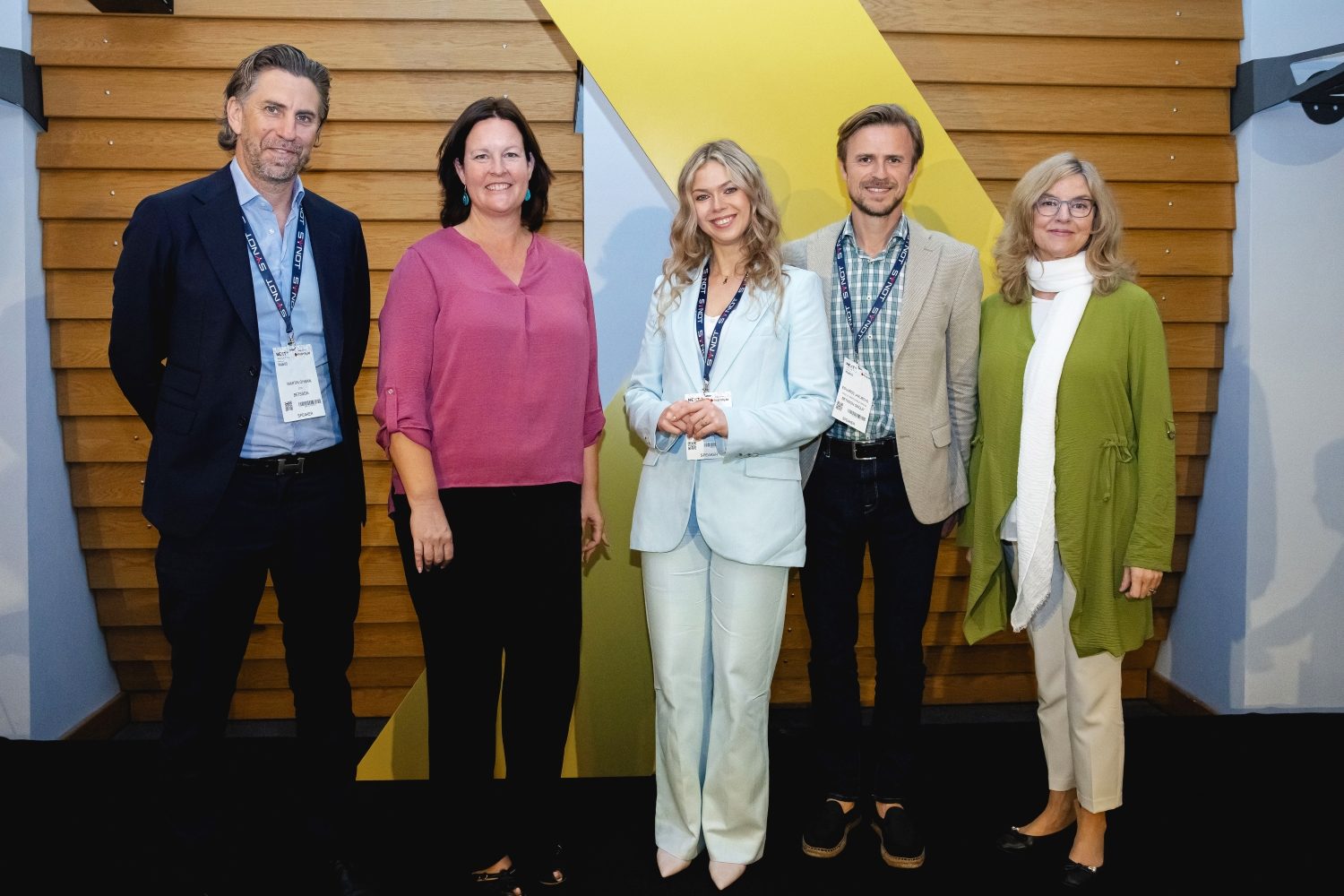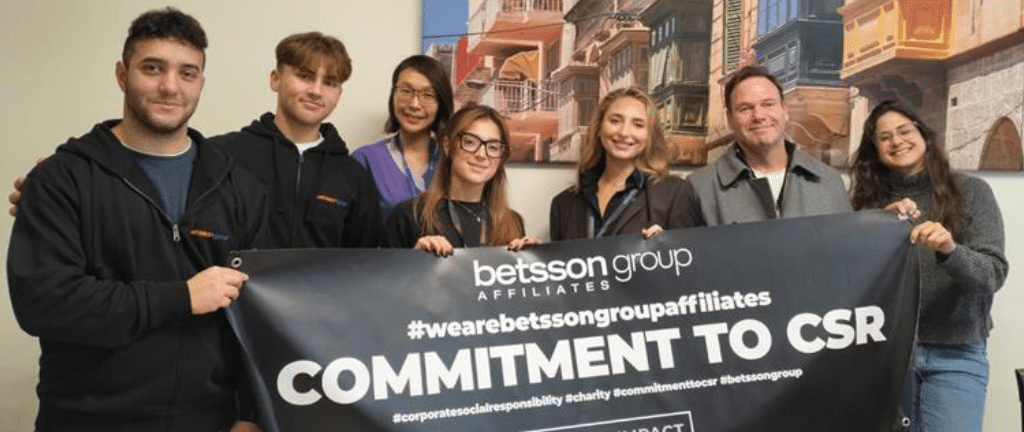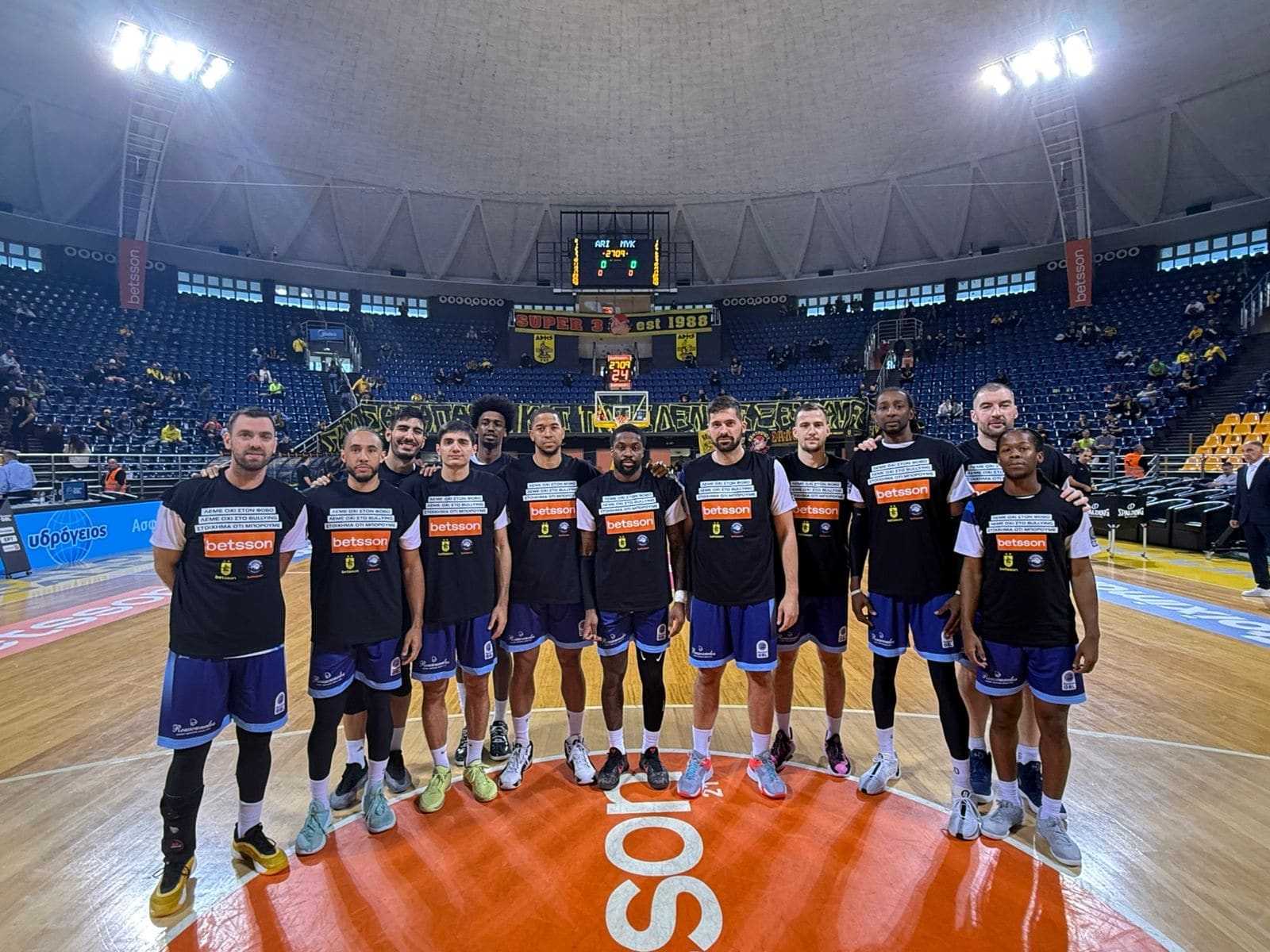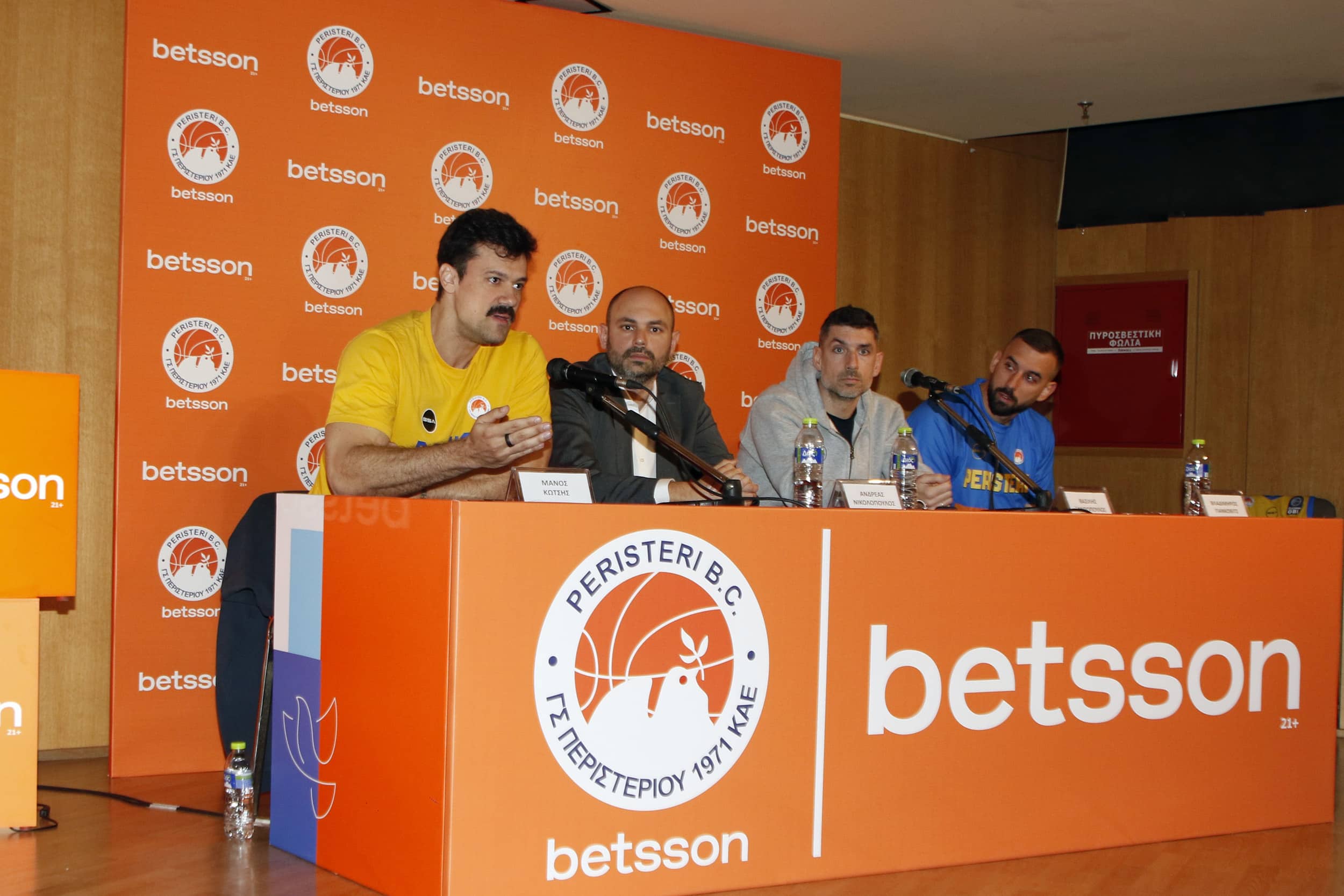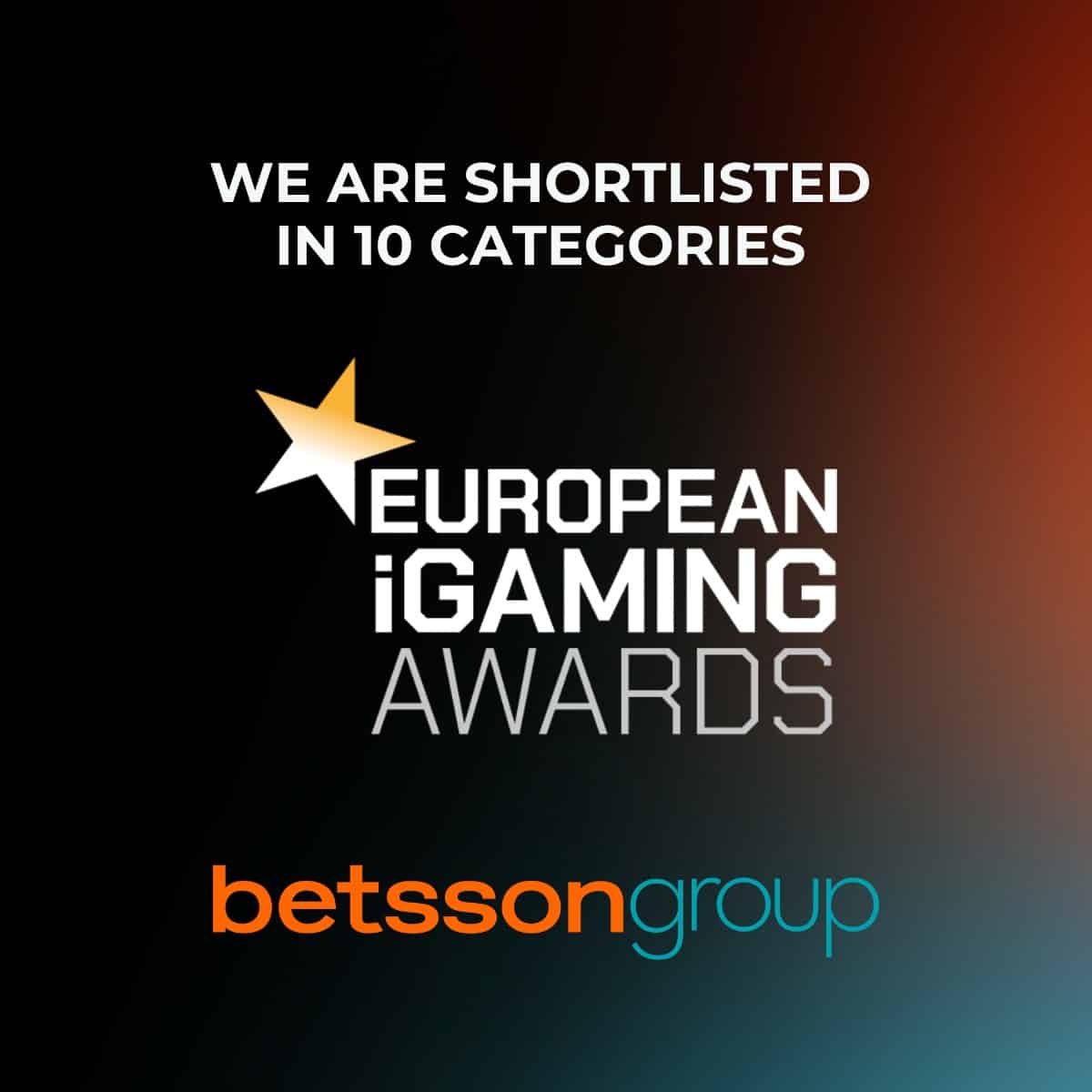Betsson AB’s Chief Financial Officer, Martin Öhman, explained how ESG goes beyond merely adopting a basic sustainable philosophy. It all boils down to the longevity of a modern company where “to be in there for the long run means to make a profit long-term.” This was only one of several takeaways from the Sustainability Track hosted by Betsson Group at the NEXT: Valletta Summit on May 16th.
Öhman during a panel on ‘Why Sustainability Matters for CEOs, CFOs and Investors?’ explained that while ESG was always important, it was a ‘nice-to-have’. In this day and age, however, ESG principles are akin to enhanced due diligence in terms of investor priorities. In essence, if any company in the gaming sphere wants to remain visible, let alone relevant, they need to satisfy all ESG criteria. Not to mention the pressure on companies to move further along in this direction due to the EU’s CSRD (Corporate Sustainability Reporting Directive).
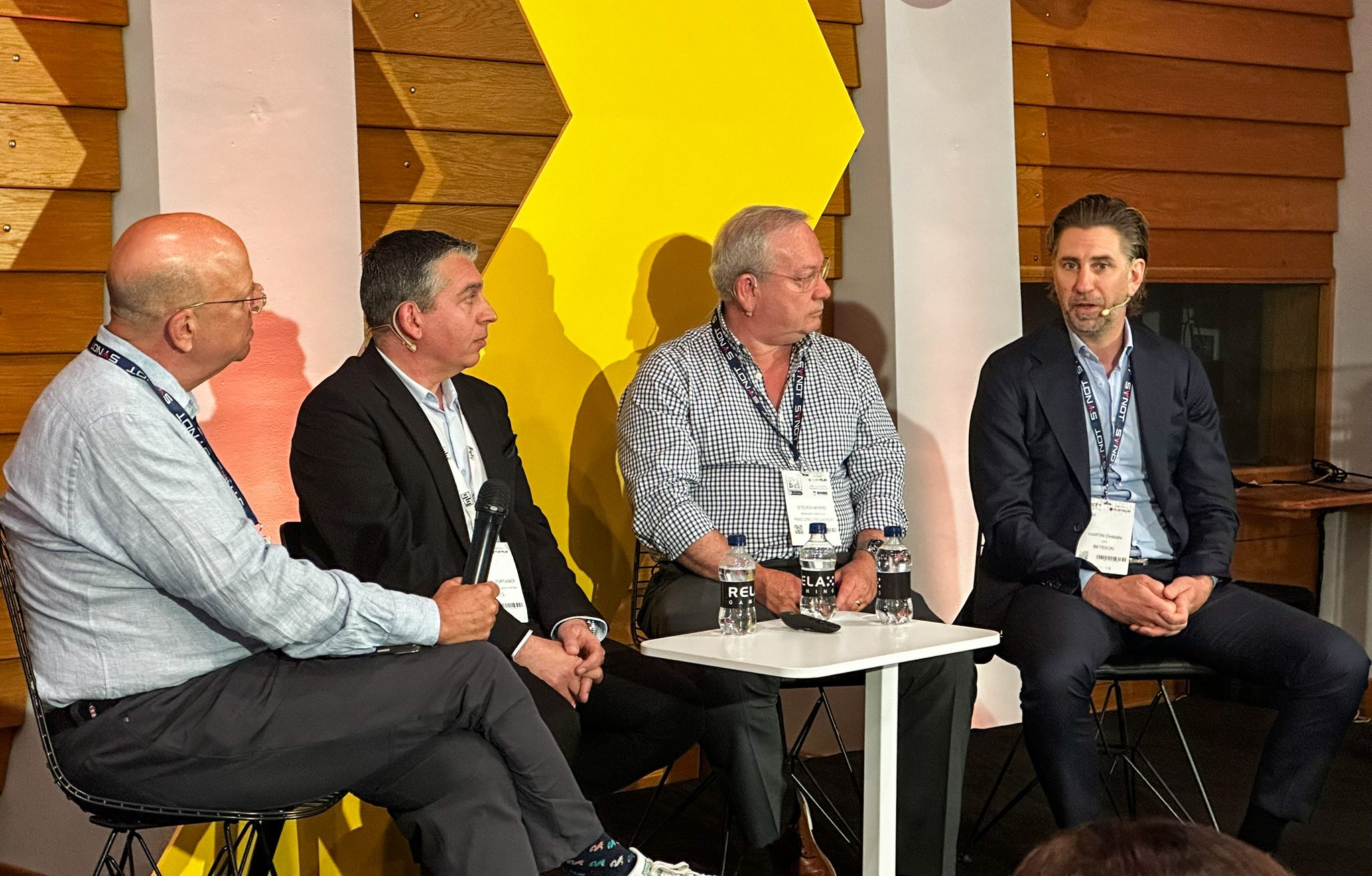
In fact, the CSRD was the key talking point for another panellist, Advisory and Compliance Partner with GTG Advocates, Reuben Portanier. This directive is the EU’s way of enforcing the publishing of regular reports on social and environmental risk factors faced and caused by large and listed companies. Portanier insisted that, while this directive directly impacts a limited number of companies, it has created “a domino effect” where smaller companies might not yet have realised that they too will be effected.
In a fireside chat, Anna Grech, International Affairs & Policy Outreach Manager at the Malta Gaming Authority (MGA) highlighted that the MGA ESG Code of Good Practice (PDF), similarly to CSRD, sets the standard for increased transparency, accountability and ethical behaviour within the industry. In fact, Grech wanted to make it clear that this code is not explicitly for large or established companies, instead looking at it as a stepping stone to help regarding operational readiness in reporting, as well as fitting into a value chain.
Several references to sustainability as more than just an environmental notion emerged throughout the track. Betsson’s Chief HR Officer, Lena Nordin, put a spotlight on Gen Z and how a new knowledgeable workforce has raised the bar for sustainable practices across the board. “Gen Z are tired of waiting for governments to take action,” instead raising the expectations on businesses to pull their own weight for ESG practices, more specifically in terms of environmental impact and social diversity. Starting predominantly with the wave of Millennial employees, the younger the workforce becomes, the more research they do to make sure they find employers who “share their values on sustainability.” At the end of the day, what this new knowledgeable pool of potential recruits is looking for is a sense of belonging. As Nordin pointed out, “belonging is fundamental to our happiness and wellbeing.” This sentiment, along with a “sense of purpose” was also echoed by the Board Member for Academy of Givers, Roberta Lepre. This NGO focuses on connecting philanthropists with voluntary organisations, as well as giving support and guidance where needed. Betsson Group is a proud member of this organisation.
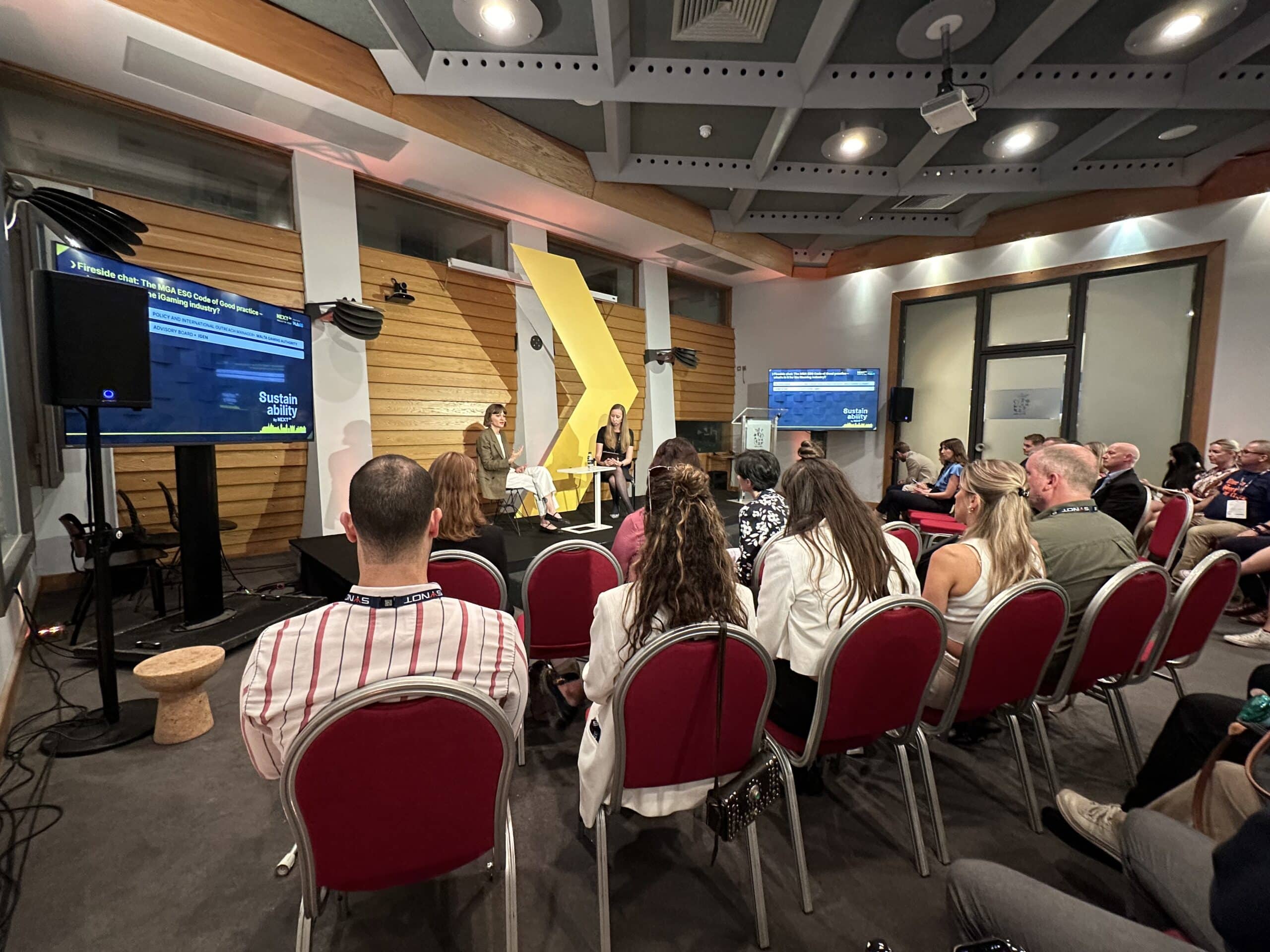
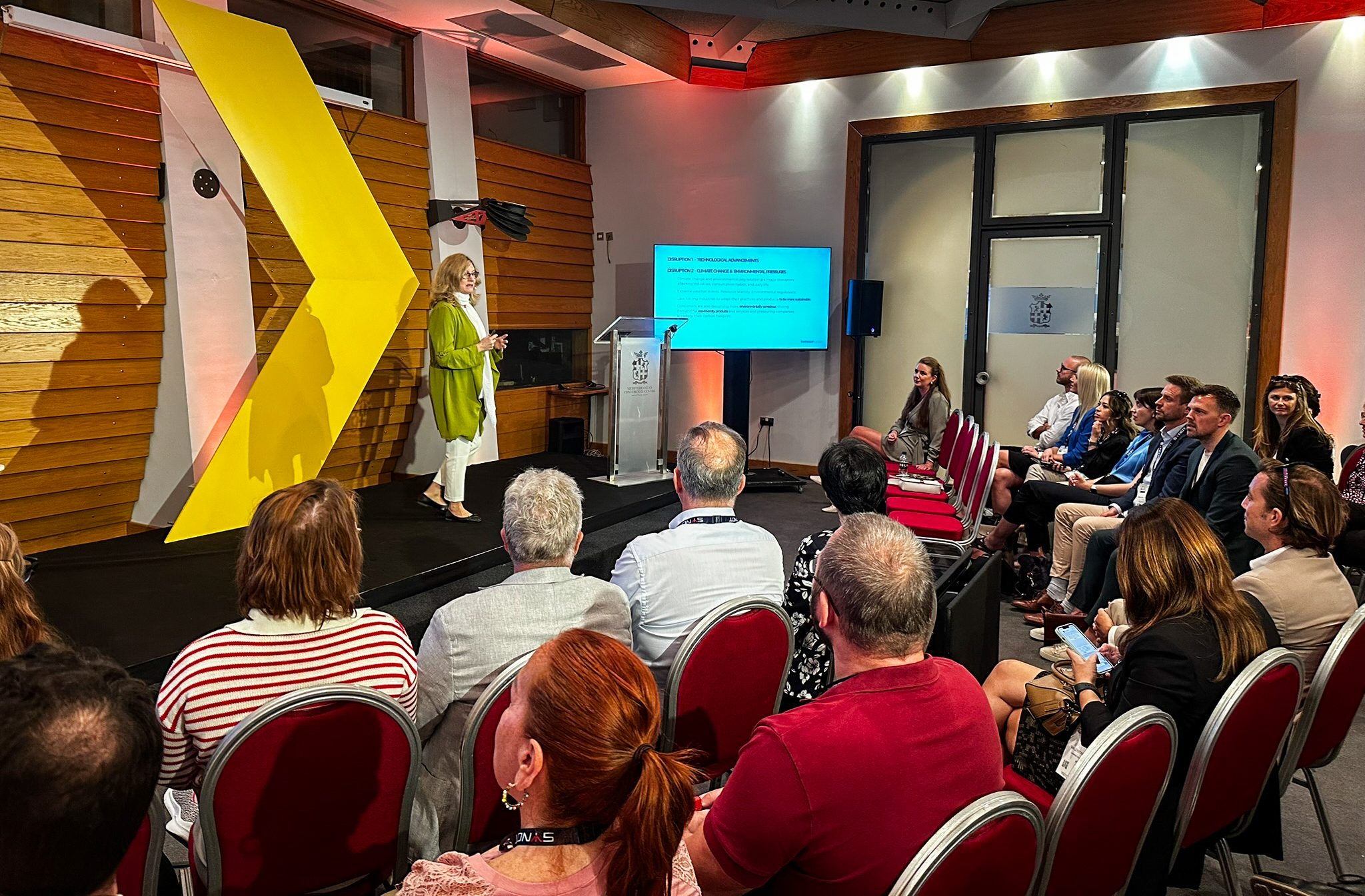
Betsson’s Head of Sustainability, Jonna Danlund, meanwhile illustrated how “the time when a woman or man was an island is no more” in terms of driving a sustainable agenda. This means that we can no longer simply rely on a single person or team to fill the ESG gaps within a company. Looking towards the UN as a guide, she was able to make their definition of sustainability more business focussed – essentially, “do what you need to meet [stakeholders’] needs today without compromising your ability to meet their needs in the future.” In layman’s terms, find out how to best keep your business sustainably profitable to ensure profitability is not just an initial boom, but a constant. With this in mind, Betsson’s Sustainability Framework has five focus areas: Responsible Gaming, Business Compliance, Employee Impact, Social Impact, and Climate Impact.
Naturally, the two main notions of “profitable sustainability” and inter-departmental cooperation were pillars throughout the day. Director and Gaming Lead for the KPMG, Russell Mifsud, defined the above term as “the power to do good for a thriving society as well as have a profitable business.” Essentially, businesses don’t operate in a vacuum and ESG practices are one surefire way to allow further risk identification, monitoring, and management.
This also goes hand in hand with responsible gaming being a key feature of ensuring clients are retained in the long run. Betsson Group’s Head of Responsible Gaming (RG), Eduards Jakubovs, and Head of Customer Service (CS), Viktorija Nikiforova highlighted this macro view on player protection in their fireside chat. Success here comes in the form of an educated workforce across all facets of customer service and constant cooperation between teams, notably RG, CS and AML (Anti-Money Laundering). This will not only provide a better overall understanding of RG issues and protection, but also a solid push for faster escalations and problem solving.
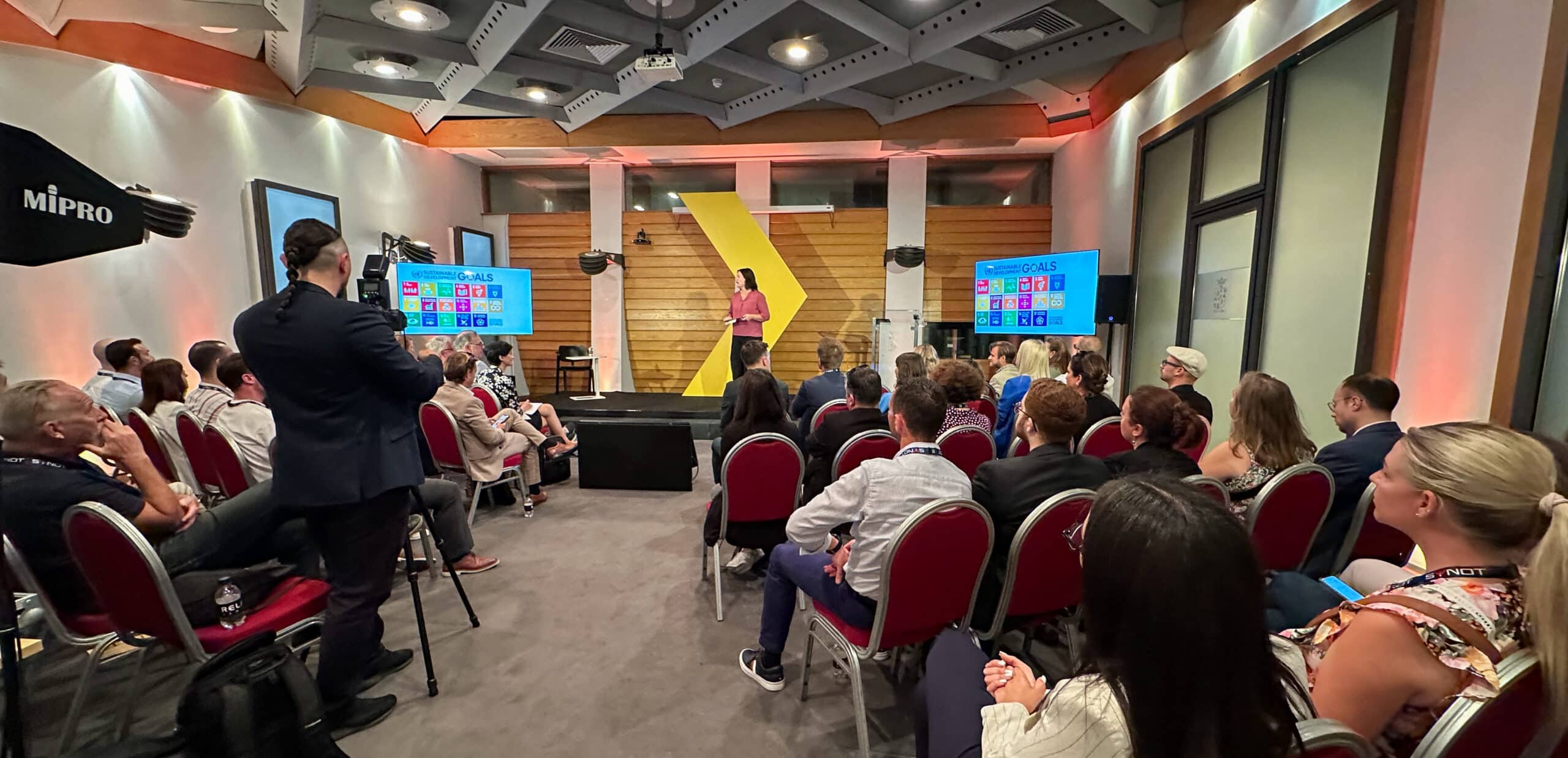
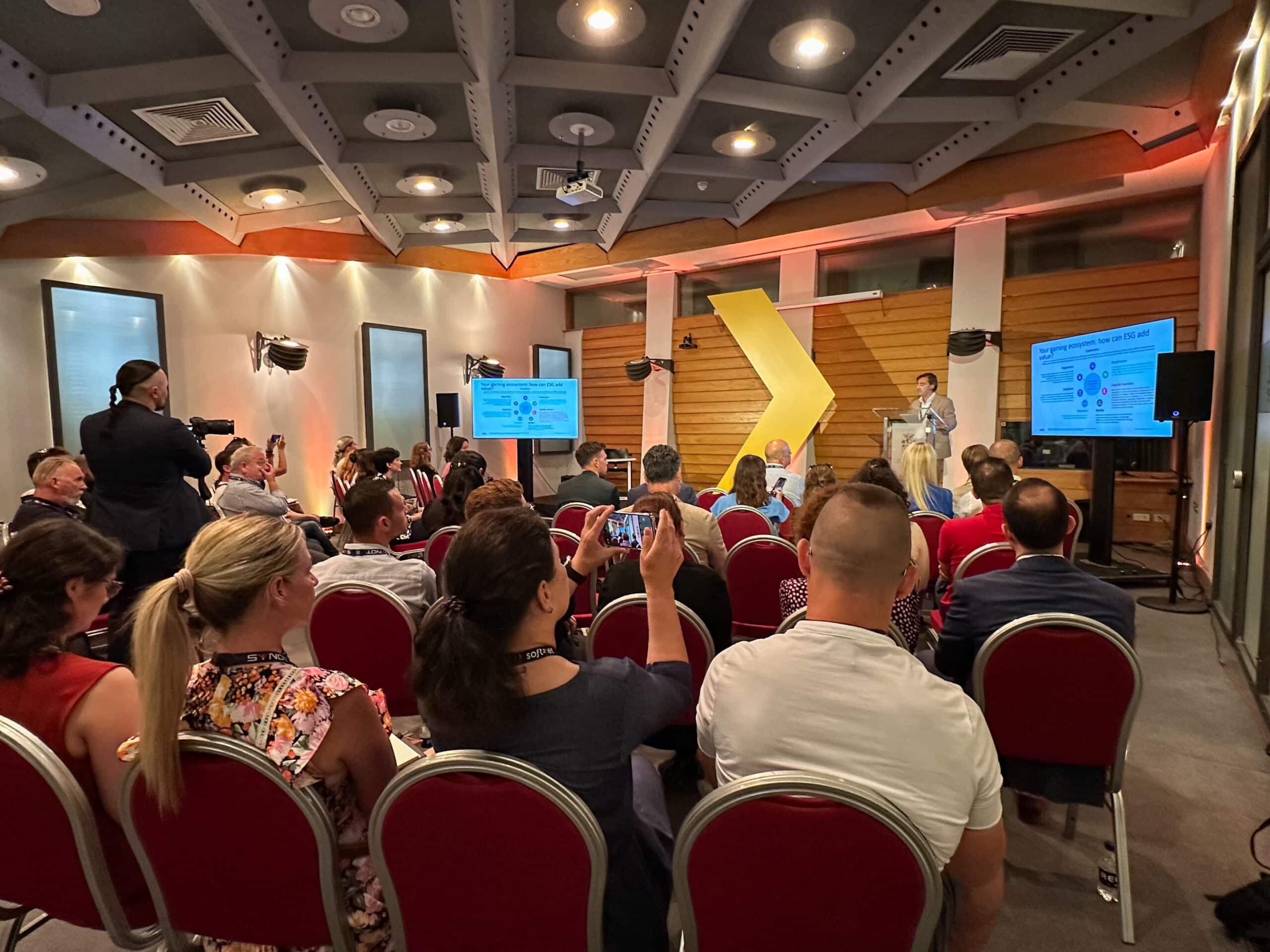
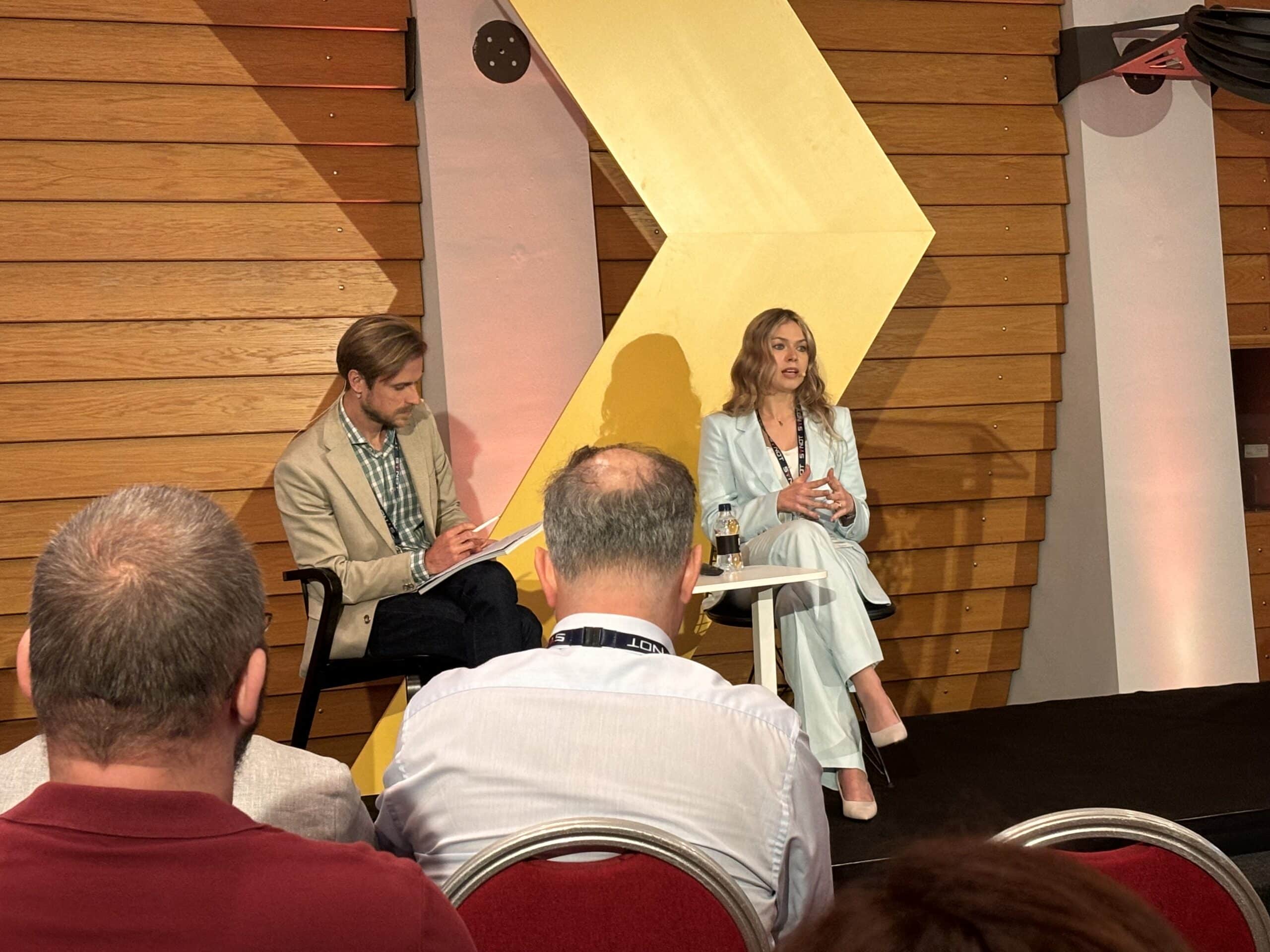
The last panel of experts for the day tackled how companies in the gaming sphere must make operational sustainability more than just an ideal. Led by Danlund , it was mentioned how Betsson Group climate compensates not only for the emissions the company causes directly, but also for those resulting from customers’ device usage. JVH Gaming Head of ESG, Liesbeth Oost, spoke about how the key takeaway here is longevity. It is easy to miss the forest for the trees when ignoring smaller ESG principles short-term. KPMG Associate Director and ESG Lead, Rachel Decelis, explained that her focus is resilience – going hand in hand with Oost. Decelis spoke of the main challenge within ESG being its complexity . She insisted that there is a lot which companies already do by default which falls under the ESG umbrella, . Finally, Play ‘n’ Go’s Director of CSR, Vanessa Arenram, pointed out that it is all about accountability and taking responsibility. “Ultimately every company has an impact on the people we employ, the industry we work in, the customers, and the planet” – even in cases where a company needs to leave money on the table in the short-term in exchange with being more forward thinking.
All things considered, it was clearly outlined by stakeholders and industry leaders both within Betsson Group and externally, that the push towards more sustainable practices in gaming is no longer an option, but an obligation. The iGaming sphere is at a generational crossroads where it takes ESG principles not only to operate profitably, but to attract new and substantial investment and follow through with a holistically more-educated workforce.
